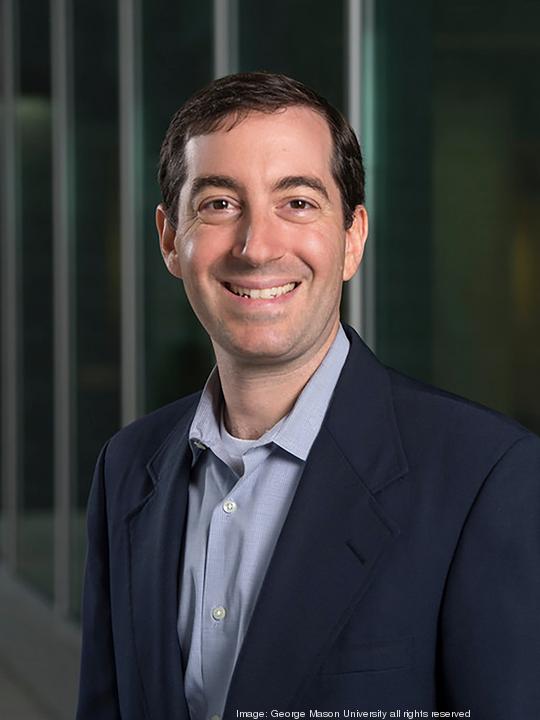
The Covid-19 pandemic has demonstrated not only how vulnerable our society is to contagious pathogens, but also the benefits of having a robust biomedical and pharmaceutical infrastructure that can develop new vaccines and therapeutics in record time.
The field of synthetic biology, the science of engineering microorganisms and creating new ones, has made important contributions to the fight against Covid-19. At the same time, recent troubling work in this field has raised concerns about the risks posed by the misuse of this technology — and California has the opportunity to lead the way on combating this misuse.
In 2018, a Canadian scientist with funding from an American biotech company used DNA ordered from a German firm to resurrect the extinct horsepox virus. The laboratory synthesis of the virus from its constituent DNA by itself was not a problem — horsepox does not pose a serious health threat to humans. However, the same technology and techniques could be used to synthesize a closely related virus called variola, better known as the cause of the dreaded disease smallpox.
After causing 300 million deaths around the world in the 20th century alone, smallpox was eradicated from nature in 1980 by the World Health Organization. The only known stocks of the virus reside in two secure laboratories in the U.S. and Russia. So far, these conditions have posed an insurmountable obstacle to countries or terrorist groups interested in using this virus as a weapon. Synthetic biology, however, opens up a new pathway for a malicious or reckless actor to obtain the virus. The reintroduction of smallpox — by a nefarious or negligent actor — would be a global health catastrophe.
According to a 2019 global survey by the Nuclear Threat Initiative, no country, including the U.S., requires companies that sell synthetic DNA to prevent "questionable parties" from acquiring these materials. The U.S. has guidelines for these companies to screen orders and customers, but these are completely voluntary, there is no means of verifying compliance, and they have not been updated in more than 10 years.
A group of DNA synthesis companies, the International Gene Synthesis Consortium, does require its members to screen sequence orders and customers for biosecurity purposes. The consortium, however, represents only 80% of global DNA manufacturing capacity, leaving an uncomfortably large number of companies operating without any sort of regulation on what they can make or who they can sell it to. This vulnerability to potential misuse will only grow as new companies enter the DNA synthesis market and new technologies become available.
California Gov. Gavin Newsom now has the opportunity to reduce the risk posed by synthetic smallpox — and other novel biological threats —and keep California’s bioeconomy innovative and strong. The California Assembly recently approved the Gene Synthesis Security bill (AB 70), introduced by State Assemblymember Rudy Salas, that would close this vulnerability by requiring companies that produce or sell synthetic DNA in California to have screening standards that meet or exceed those used by members of the IGSC.
The Scientists Working Group on Biological and Chemical Security, which has been working to prevent the misuse of biology since 1989, urges the governor to sign this important legislation.
If adopted, California would establish the first legally binding biosecurity measure for the synthetic biology industry in the U.S. — and in the world. Just as California has been at the forefront of establishing environmental protections that have become adopted nationwide, California has the potential to set a de facto national standard for biosecurity.
In addition to making Californians safer, the bill will also boost the state’s bioeconomy by creating a level playing field that enables companies to compete on the affordability and quality of their products without making trade-offs on security. California leads the nation in life sciences research and has a vibrant bioeconomy. In fiscal year 2019, research institutions in California received 15% of all grants from the National Institutes of Health, totaling more than $4.5 billion in funding. Of the 350 U.S.-based synthetic biology companies active in 2019, 173 of them, or 49%, were based in California. Over the last 10 years, these companies have attracted more than $5 billion in private investment to develop products to improve public health, the environment, and industry.
Due to the size and vitality of the Californian bioeconomy, synthetic DNA providers, based in the U.S. and abroad, will not want to get frozen out of this important market. Holding more companies to a higher standard for biosecurity will also reduce the risk that a careless or unscrupulous company could sell DNA that is misused. It would only take a single lab accident or bioterrorism incident with an engineered pathogen to cast a pall over the entire field of synthetic biology and the burgeoning DNA synthesis industry.
Given the strength of California’s bioeconomy, AB 70 has the potential to establish a new standard for biosecurity for the entire nation, and maybe even the world. Preventing the accidental, reckless, or malicious misuse of synthetic biology will safeguard the bioeconomy and protect public health in California and the rest of the country.
Gregory D. Koblentz is director of the Biodefense Graduate Program at the Schar School of Policy and Government at George Mason University and is a member of the Scientists Working Group on Biological and Chemical Security of the Center for Arms Control and Non-Proliferation.




